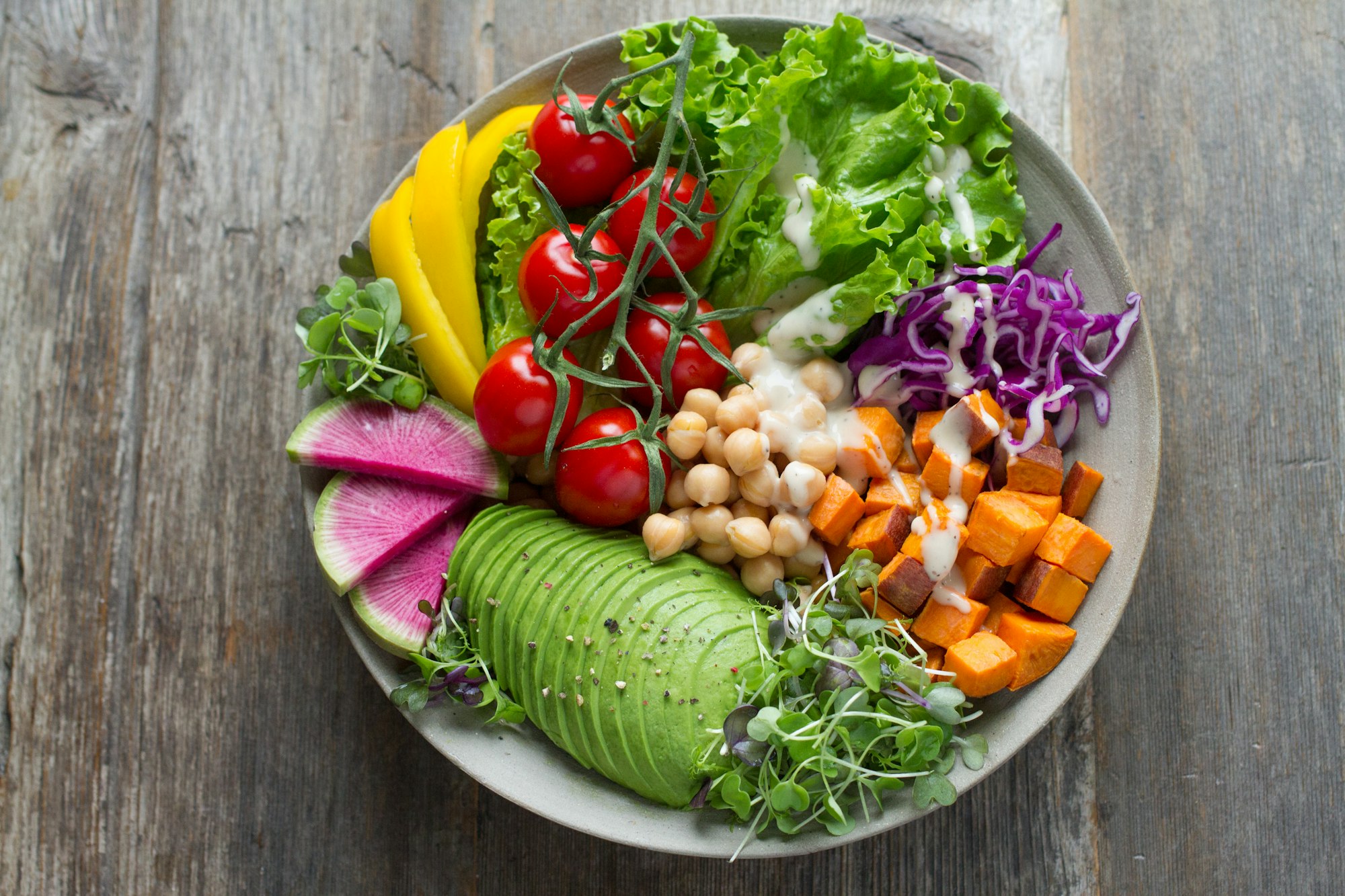Why can the idea of healthy eating feel so complicated? How do I know what foods are good for me? What should I be eating to keep myself healthy?

Eating healthily has so many benefits for the mind and body. Making the right food choices for you can not only support your immunity and longevity, but it can also improve your bone, skin, gut, and eye health. But being bombarded with the latest health crazes can feel both confusing and a bit intimidating at times. It’s so easy to get caught up in a bit of a daze with it all.
We’re pretty good at knowing why it’s important to eat healthily, but how to put it into action is a whole other thing. If you are finding it a struggle, there are some simple ideas to stick to that can teach you all you need to know about healthy eating.
No more fad diets
The promise of quick weight loss might seem appealing but fad diets are usually lacking in scientific evidence and can feel quite restrictive. Cutting out entire food groups can be unsustainable and may make you feel disheartened about trying to change your eating habits. The last thing you want is to feel like you’re back to square one with it all.
The dieting industry relies on people failing over and over again. In her article, 5-minute reads: Why diets don’t work, Kacie Shoulders (ANutr) explains why diets are to be avoided and why the best advice is to eat a balanced diet.
“I know you may be thinking that your diet includes a whole lot of food, or promises to. But as soon as you restrict in any way (and most diets are about low calories so will be restricting) your body thinks it’s got to battle for survival. Food is clearly scarce and it needs to adapt. That means increasing appetite hormones, decreasing satiety hormones, slowing down your metabolic rate, etc.”
Eat a balanced diet
Eating a balanced diet is a way of ensuring you eat the proper nutrients from a variety of foods, helping your body feel good.
Here are a few basic tips to help you get started:
- Try eating at least five to seven portions of fruit and vegetables daily.
- Keep well-hydrated (six to eight glasses is recommended per day)
- Carbohydrates such as pasta, rice, and potatoes should be about the size of your fist; this will vary depending on how active you are.
- Eat good quality protein with every meal such as meat, fish, eggs, whole grain beans and pulses.
- Try to reduce refined sugar found in sweet treats and fizzy drinks.
- Keep your saturated fat intake found in crisps, pies, processed meats, and baked goods to a minimum where possible.
- Make healthy choices based on the reference intakes guidelines found on the back of food packaging.
It’s also great to remember that being active, especially in nature, is a lovely way to support your body’s needs and complements all the great benefits of healthy eating. Looking after yourself in all these ways can help give you more energy, focus, and motivation.
Look after your attitude to food
Even though there may be certain foods y